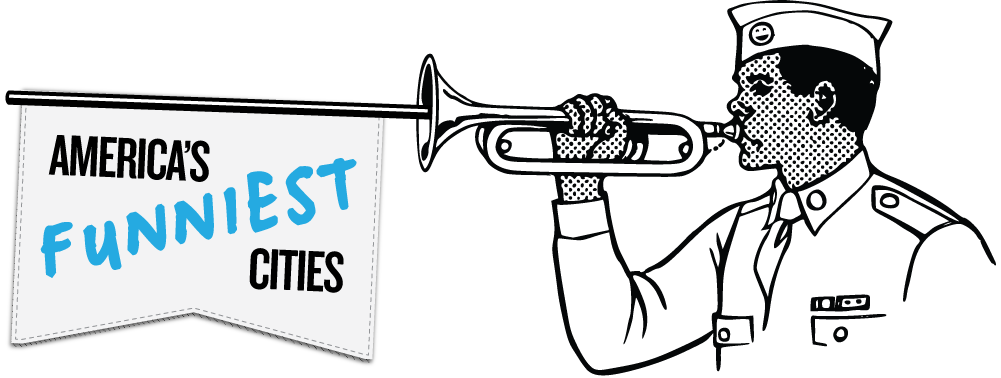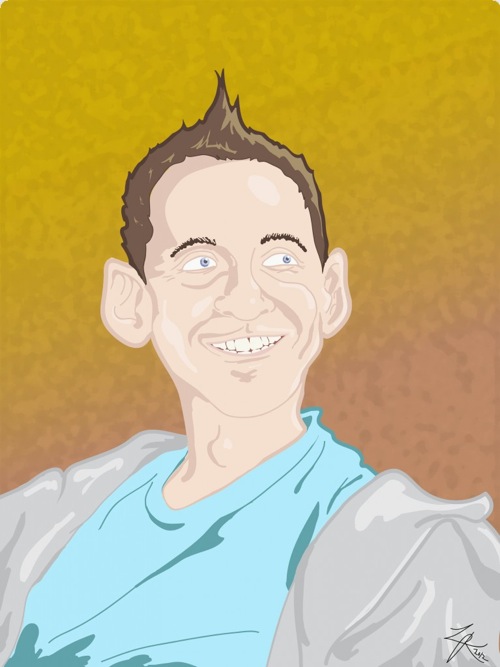As part of our global expedition exploring what makes things funny, we’re grilling humorists about the science behind scoring laughs.
“Co-creator of Chappelle’s Show.” With a credit like that, it would’ve been easy for Neal Brennan to quietly retire among the comedy gods once the celebrated sketch-comedy show (not to mention Brennan and Dave Chappelle’s relationship) fell apart in 2005. But Brennan — opinionated, cerebral and intense — isn’t built that way. Along with honing his humor chops behind the scenes (He directed the 2009 film The Goods: Live Hard, Sell Hard and wrote bits for the 83rd Academy Awards and the 2011 White House Correspondents Dinner with Seth Meyers), Brennan has built for himself a national stand-up career. Sure, it would be great for Brennan and Chappelle to get back together one day, but in the meantime, Brennan’s doing just fine on his own.
Humor Code: Were you born funny, or did your funniness come from practice and development?
Brennan: I’m pretty sure I was born funny. I remember being funny early on. But it’s certainly something that one gets better at with exposure; seeing how other people are funny.
In terms of screwed-up childhood, it seems to be a prerequisite in my experience. Every comedian I know will eventually divulge something troubling that happened during their youth. My dad’s family is funny. He’s one of 13 children raised in the Great Depression. They were screwed up. And he passed that legacy on to us.
Humor Code: Describe your comedy creation process, as well as your revision process.
Brennan: It’s pretty mysterious, even to me. Most of the things I think of seem to come from noticing some hypocrisy or something blatantly unfair or grandiose. Dave Chappelle once said, “I’m obsessed with justice.” I think that’s true.
Revisions-wise, I think the best thing a comedian can do is listen or feel the audience’s response. If a joke isn’t getting the level of laughs you want, revise it, which can mean explaining the premise in a clearer way, or coming up with harder punch lines. And if it doesn’t work the first three times you try it, it’s never gonna work. Dump it.
Humor Code: What are the biggest misconceptions about what you do?
Brennan: That I’m constantly looking for material in every interaction. Girls always say that: “You’re gonna use this, aren’t you?”
I’m just looking to have an interaction like anybody else. If I go to the store, I’m not trying to slip in the middle of the aisle so I can talk about it onstage. I’m at the store because I need food or medicine.
Humor Code: What, for you, is the toughest kind of audience to make laugh?
Brennan: Black audiences are probably the toughest for me to make laugh. I’ve gotten pretty good at performing for them, but it’s still a challenge. The level of performance has to be higher. “Dry” doesn’t really work for them. They demand energy. I do racial material, so it needs to be nuanced and smart and true. And they will eat you up if they smell that you’re nervous.
Humor Code: Can you give an example of when one of your jokes failed badly? Can you explain why it failed?
Brennan: Last night I tried a joke about Irish people. I made the observation that every country on Earth has their own cuisine, their own restaurants. Irish don’t have restaurants; all we have are bars. And we don’t even make our own beer—except for one, Guinness—and we won’t even bother serving it cold, because we consider refrigeration too festive.
You may be thinking that this joke should have worked, and I would agree with you. The reason it didn’t is because I didn’t give it any setup. I didn’t say that I don’t like being Irish because we’re depressing and generally alcoholic. I’m going to do the joke again tonight with that setup. Hopefully, it will work.
Humor Code: What is the worst heckling you’ve ever experienced? How do you handle hecklers?
Brennan: I did a show about a year ago. At this point, I was a fairly experienced comic. I went on late in a predominately black/Latin room on theLower East Side inNew York City. I was pretty nervous for the set, as I am the first time I go on anywhere. I walk onto the stage, and some kid in the audience yells out, “Yo, are you scared?” Most of the audience didn’t hear him, and I ignored him. But he was right. I was scared. And he could tell. And then I was scared and embarrassed. The set was a C+, at best.
Humor Code: How could the comedy industry do better at finding, fostering, and promoting new talent?
Brennan: They would be better at finding new talent by looking more often than when they’re invited to look. If I worked in the industry, I would go to shows every night. I wouldn’t wait for showcases or festivals. It’s silly.
Humor Code: How is technology changing comedy for the better—and how is it making it worse?
Brennan: It’s changing it for the better, because now it’s far more DIY. I love that. I love the fact that I can make a podcast in my house and tens of thousands of people will hear it. I also like that it’s gotten rid of a lot of gatekeepers. Said gatekeepers really don’t know what audiences will like. Nobody does—except Jerry Bruckheimer and Judd Apatow and Matt Stone and Trey Parker—so it’s great to be able to go out and prove something without needing someone giving you permission.
The downside to all of it is there are no excuses anymore. You used to be able to use the gatekeepers as bogeymen. Now, if something doesn’t work, it’s generally your fault.
Humor Code: How will comedy be different five years from now? Who—or what—is the future of comedy?
Brennan: I don’t know where it will be in five years, though I’m pleased with where it is now.
I think the future belongs to the comedic polymath. It belongs to the person who can generate the most good material in the biggest variety of ways, whether it’s sketches or stand-up or songs or tweets or television or films. The audience is a baby. The future belongs to whoever can provide the most material to feed that baby.
Humor Code: How do you define humor? What do you think makes things funny?
Brennan: I suppose I would define it as anything that makes people laugh.
Humor Code: What are the characteristics of a good comic?
Brennan: Intellectually honest. Integrated in terms of subject matter. Possesses an interesting, unique point of view. And is human and charming.
Humor Code: In your opinion, what makes a good comedic performance space? And what makes a bad space?
Brennan: Good space: low ceilings, good sight lines, good sound, clear lighting, warm tones decor-wise.
Bad space: the opposite.
Humor Code: How far would you go to get a laugh? Is anything off-limits?
Brennan: Nothing is off-limits. Some things, I think, are just low in terms of level of difficulty. But I’m up for saying or doing anything as long as it’s original and not inhumane.


